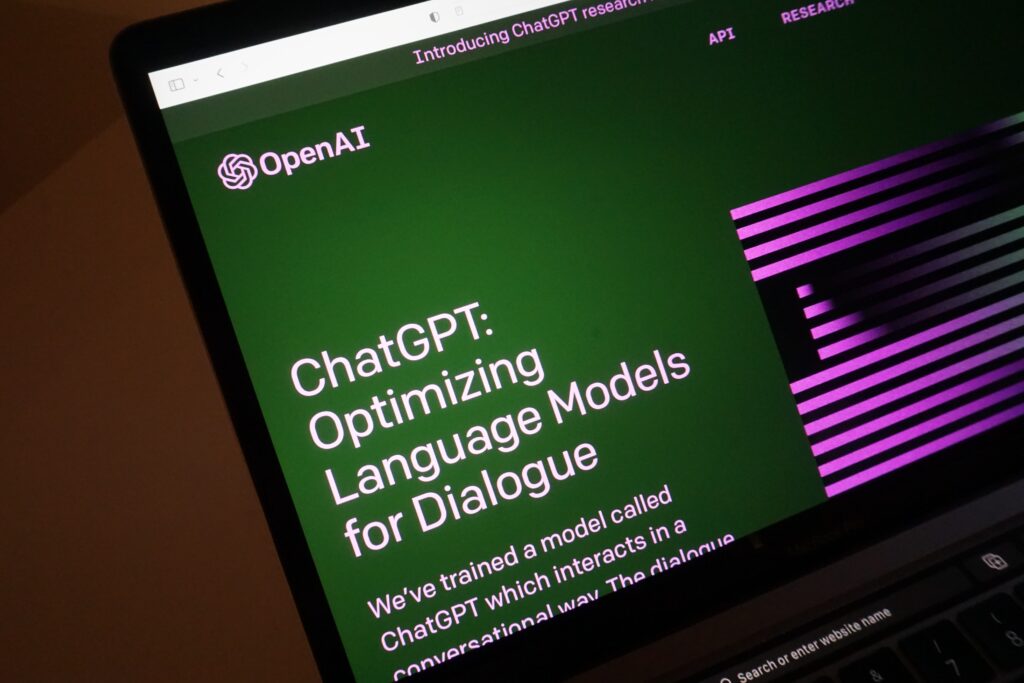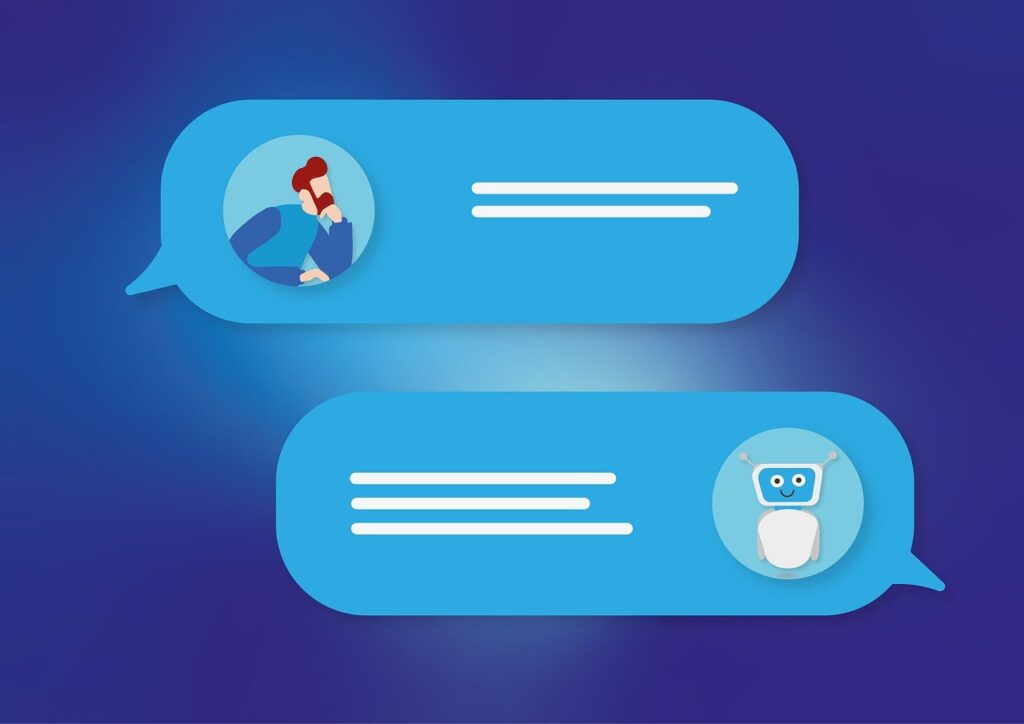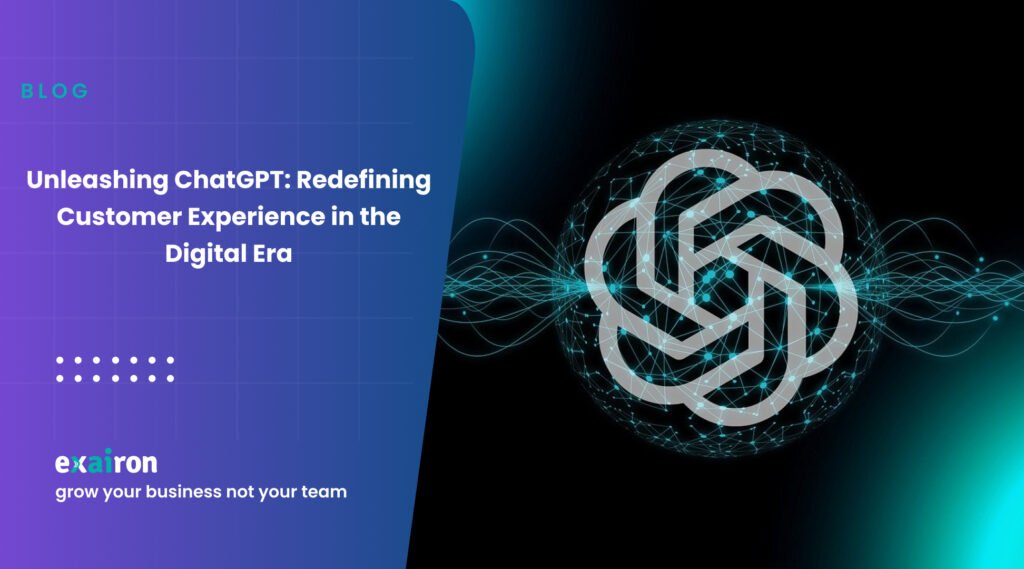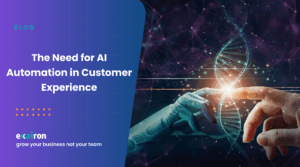In today’s digitally interconnected world, the landscape of customer experiences is undergoing a monumental shift. The integration of cutting-edge technologies has become imperative to meet the evolving demands of consumers. At the forefront of this transformation stands ChatGPT, an AI marvel revolutionizing the dynamics of customer interactions.
Customer support is one of the key areas in which ChatGPT is expected to drive the most value for companies. According to McKinsey research, the vast majority of gen AI use cases fall within 4 business functions: Customer operations, marketing and sales, software engineering, and R&D. In fact, approximately 75% of the total value this technology is expected to generate will be see within these areas.
In an era where customer experiences are crucial for success, generative AI has the potential to significantly impact your business.Generative AI tools such as ChatGPT have the potential to have a significant impact on various aspects of business, particularly customer support. Generative AI enables customer representatives to enhance their service.
Examples of solutions similar to ChatGPT include Gemini, developed by Google and utilizing the LaMDA language family; Microsoft Copilot, developed by Microsoft and shortly renamed Bing Chat after its announcement; Claude 3 Haiku, an artificial intelligence model developed by Anthropic for corporate enterprises; and JasperAI, an AI-powered content creation tool promising to streamline content production and writing processes to make business operations more efficient.
This blog post serves as a comprehensive guide to understanding ChatGPT’s role in reshaping modern customer experiences. From multilingual support to personalized interactions and proactive engagement strategies, we’ll explore the various facets of ChatGPT’s influence on the Customer Experience (CX) landscape.

Adapting ChatGPT for Multilingual Customer Support
Adapting ChatGPT for Multilingual Customer Support is essential in catering to a global audience. With diverse linguistic needs, it’s crucial to facilitate seamless multilingual communication. ChatGPT, with its natural language processing capabilities, allows for real-time translation and understanding of different languages. This ensures that customer support interactions can occur in the customer’s preferred language, making for a more effective and personalized experience.
ChatGPT’s ability to comprehend and generate text in multiple languages enables businesses to address the needs of their international customer base without the burden of language barriers. This not only enhances customer satisfaction but also expands the reach of a company’s support services. Furthermore, ChatGPT’s adaptability to different languages extends to its ability to capture the nuances and cultural intricacies of communication, creating a more comfortable and relatable exchange for users worldwide.
By leveraging ChatGPT for multilingual customer support, businesses can drive better engagement and retention among their diverse customer base, ultimately fostering stronger global relationships and brand loyalty.
Personalizing Customer Interactions at Scale
Personalization plays a crucial role in enhancing customer experience (CX) as it allows businesses to tailor their interactions to individual customer needs and preferences. This level of customization leads to higher customer satisfaction, increased loyalty, and ultimately, better business outcomes.
ChatGPT is a powerful tool that enables large-scale tailored interactions by leveraging natural language processing and machine learning. Its ability to understand and respond to individual customer queries, concerns, and preferences makes it an invaluable asset for businesses looking to personalize their customer interactions at scale. ChatGPT’s language generation capabilities can be used to create personalized responses, recommendations, and even product suggestions, ensuring that customers feel valued and understood.
By using ChatGPT, businesses can scale their personalized interactions across various touchpoints such as websites, customer support chats, and social media platforms. This not only saves time and resources but also ensures that customers receive consistent and personalized experiences regardless of the platform they are engaging with.
Personalization is a key driver of enhanced CX, and tools like ChatGPT are instrumental in enabling businesses to personalize customer interactions at scale, leading to improved customer satisfaction and loyalty.
ChatGPT-Powered Chatbots and First Contact Resolution
Customer service is evolving quickly. With more and more customers going online to interact with businesses, companies need to find new ways to provide superior customer experience. The good news is that technology has advanced enough to provide contact centers with an effective solution.
ChatGPT-powered chatbots have significantly enhanced chatbot functionalities by leveraging advanced language understanding and generation capabilities. They have transformed first-contact issue resolution by providing more efficient and effective responses to user inquiries.
ChatGPT’s role in efficient first-contact issue resolution is notable for several reasons. Firstly, its ability to understand and generate human-like responses allows chatbots to interpret customer queries accurately and provide relevant information swiftly. This not only saves time for the user but also ensures a more satisfying customer service experience.
Additionally, ChatGPT’s vast knowledge base and contextual understanding enable chatbots to resolve a wide range of issues during the first contact itself. This reduces the need for multiple interactions and escalations, thereby improving overall support efficiency.
Training ChatGPT on your own data and knowledge base is important to ensure your customers receive relevant and accurate support. For businesses looking to improve customer experience in the digital era, training ChatGPT on their own data and knowledge base is an essential step. By doing so, companies can ensure that customers receive relevant and accurate responses from their chatbot. Using their own data and knowledge base allows companies to tailor the chatbot’s responses according to their specific needs.
Moreover, with ChatGPT’s continuous learning and adaptation to new information and trends, chatbots can stay up-to-date with the latest solutions and best practices, further optimizing first-contact issue resolution.
In conclusion, ChatGPT-powered chatbots play a crucial role in efficient first-contact issue resolution by improving response accuracy, reducing resolution time, and keeping up with evolving customer needs.

Proactive Customer Engagement Strategies with ChatGPT
Proactive customer engagement involves anticipating and meeting the needs of customers before they even realize they have them. This approach, as opposed to reactive engagement, allows businesses to stay ahead of customer issues and ensure a positive customer experience. ChatGPT, powered by OpenAI’s advanced AI technology, enables businesses to engage in proactive customer support by analyzing customer data and behavior to predict their needs. By understanding customer patterns and preferences, ChatGPT can generate timely and personalized responses to customer inquiries, proactively addressing potential concerns or questions.
ChatGPT’s natural language processing capabilities allow it to understand and interpret customer queries, providing predictive and informed assistance. Through proactive engagement, businesses can not only enhance customer satisfaction but also increase customer retention and loyalty. By leveraging ChatGPT’s predictive abilities, businesses can offer a seamless and efficient customer experience, leading to improved customer relationships and brand reputation. With its capacity to anticipate and address customer needs, ChatGPT serves as a valuable tool for businesses looking to adopt proactive customer engagement strategies and stay ahead in the competitive marketplace.
Improving Response Time and Efficiency with ChatGPT
In the world of customer experience (CX), rapid response times are crucial for customer satisfaction and retention. When customers reach out with inquiries or issues, they expect quick and efficient resolutions. Delayed responses can lead to frustration and dissatisfaction, ultimately impacting brand perception and loyalty.
According to a study published on Forrester, 66% of US consumers say valuing their time is the most important measure companies can take to provide a remarkable online customer service experience. ChatGPT is capable of delivering instant, accurate responses. You can use a self-service AI chatbot powered with ChatGPT to reduce wait times significantly. Eventually, it will lead to a more efficient support experience, boosting customer satisfaction and fostering loyalty.
This is where ChatGPT comes in, streamlining interactions to ensure efficient and timely responses while minimizing human intervention. By utilizing AI-powered chatbots, ChatGPT can handle multiple customer inquiries simultaneously, significantly decreasing response times. The ability to understand and interpret customer messages accurately allows ChatGPT to provide relevant and helpful responses promptly.
Additionally, ChatGPT can be programmed to handle routine tasks, such as FAQs or order tracking, freeing up human agents to focus on more complex issues. This not only improves response times but also increases overall efficiency and productivity within customer service teams.
In summary, the importance of rapid response times in CX cannot be understated, and ChatGPT plays a vital role in optimizing these interactions. By streamlining the process and allowing for quick, accurate, and efficient responses, ChatGPT ultimately elevates the overall customer experience.

ChatGPT in eCommerce: Redefining Online Customer Assistance
ChatGPT has revolutionized the eCommerce sector by redefining online customer assistance. With its natural language processing capabilities, ChatGPT enables 24/7 real-time customer support, addressing queries and concerns promptly. This transformative effect has significantly improved the overall customer experience, leading to increased trust and loyalty.
In the realm of sales, ChatGPT plays a crucial role in guiding customers through their purchasing journey. By providing personalized product recommendations and answering specific inquiries, ChatGPT assists customers in making informed decisions, ultimately boosting sales and conversion rates.
Moreover, ChatGPT has streamlined the process of handling customer complaints and returns, ensuring swift and satisfactory resolutions. This has led to a significant reduction in customer churn and an increase in customer satisfaction rates.
In conclusion, ChatGPT’s application in eCommerce has revolutionized online customer support and sales. Its ability to understand and respond to customer queries in a natural and conversational manner has redefined the way businesses interact with their customers. The transformative effect of ChatGPT has not only improved customer satisfaction but has also contributed to increased sales and revenue in the eCommerce sector.
Ethical Use and Data Privacy in ChatGPT Integration
When integrating ChatGPT into customer experience (CX) solutions, it is crucial to address ethical considerations and data privacy concerns. As an AI-powered tool interacting with customers, ChatGPT must be utilized responsibly, ensuring that ethical standards are upheld and data privacy laws are followed.
Ethical considerations include the potential for biased or harmful language generated by the AI, which can have negative implications for marginalized groups. It is important to continuously monitor and review the interactions to prevent any ethical breaches. Additionally, data privacy concerns arise from the collection and storage of customer data during the interactions. Transparent data practices and robust security measures are essential to protect the privacy of individuals.
Responsible AI implementation in CX emphasizes the need to prioritize ethical standards, data privacy, and the well-being of customers. Trust and loyalty from customers are built on the assurance that their data is handled with care and that the AI interactions are respectful and considerate. By addressing these ethical and privacy concerns, ChatGPT integration can contribute to a positive and trustworthy customer experience.
The Future of ChatGPT in Customer Experience
In the future, ChatGPT’s role in customer experience (CX) is expected to expand significantly. With advancements in natural language processing and machine learning, ChatGPT will continue to offer more personalized and human-like interactions, leading to improved customer satisfaction. The integration of ChatGPT with customer relationship management (CRM) systems will enable businesses to provide tailored support and information, enhancing the overall CX.
Moreover, ChatGPT is likely to take on a more proactive approach, predicting customer needs and offering relevant suggestions before the customer even asks. This proactive support will lead to higher customer engagement and loyalty.
As artificial intelligence continues to evolve, ChatGPT will likely be integrated with other CX technologies such as chatbots, voice assistants, and sentiment analysis tools to provide a seamless and comprehensive customer support experience. Additionally, with the increasing importance of omnichannel support, ChatGPT will play a crucial role in maintaining consistent and high-quality interactions across multiple communication channels.
Overall, the future of ChatGPT in CX is promising, with a focus on delivering more personalized, proactive, and integrated customer support experiences.
Conclusion:
The evolution of customer experiences is intrinsically linked to the integration of innovative technologies. As this blog has elucidated, ChatGPT emerges as a transformative force, redefining the parameters of customer interactions across various industries.
For businesses aiming to adopt ChatGPT seamlessly into their CX strategies, Exairon – Customer Experience Automation Platform – stands as the optimal solution. With Exairon, businesses can effortlessly integrate ChatGPT into their CX workflows, ensuring personalized, efficient, and impactful customer experiences.
Embrace the future of customer experiences today. Utilize Exairon as your gateway to unlock the full potential of ChatGPT within your CX processes.












